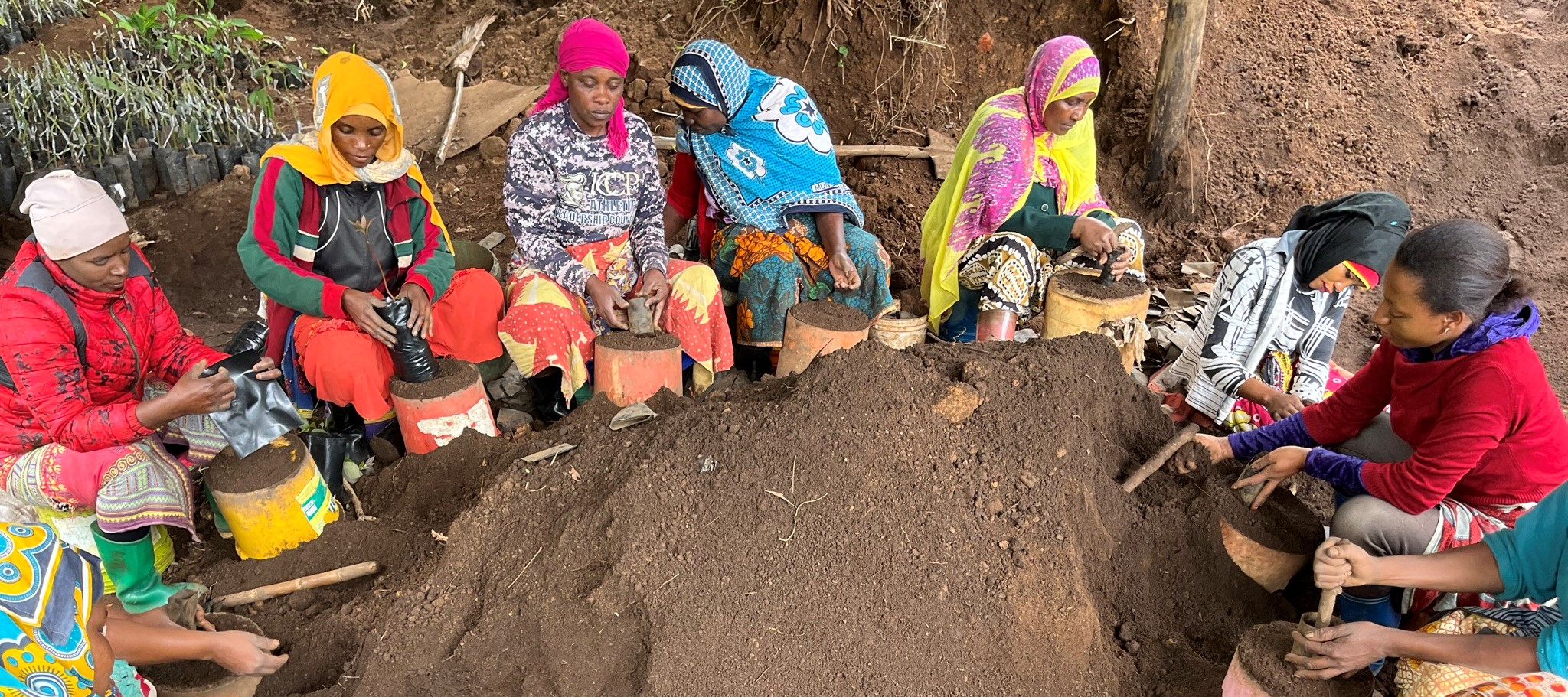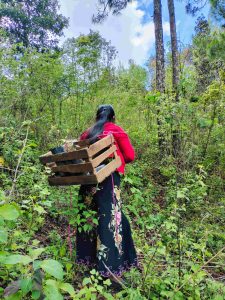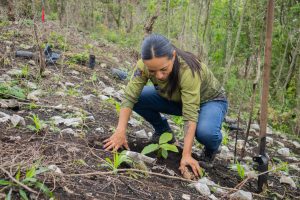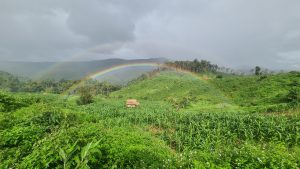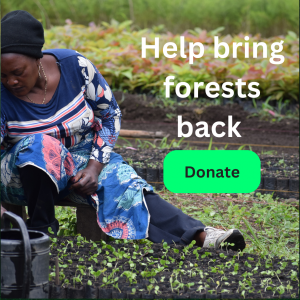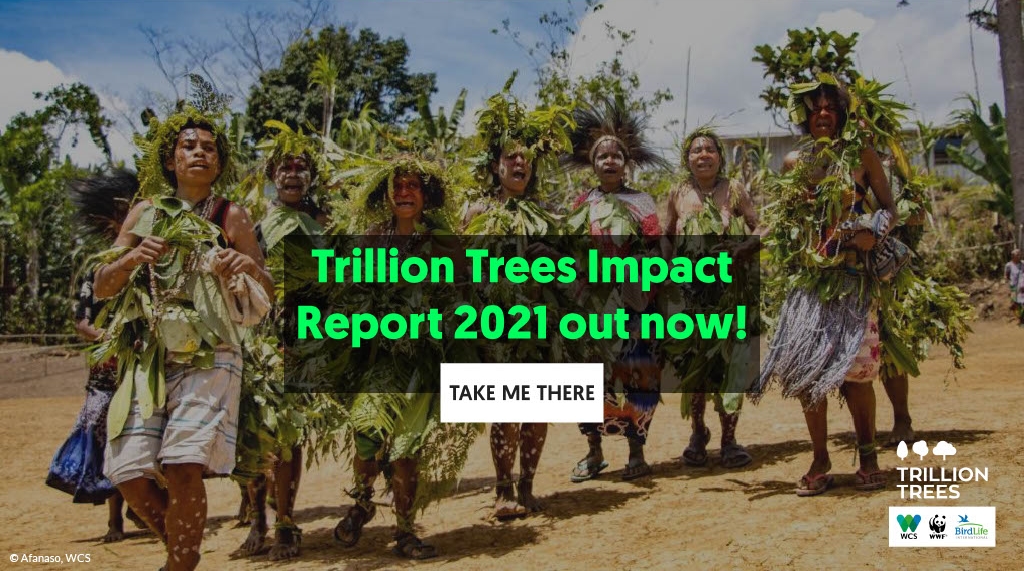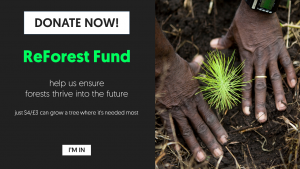By Nietiwe Robert
I started my plant nursery co-operative 15 years ago with a group of three friends, all of us women. Our nursery is nestled in a small valley high up in the lush green Usambara Mountains, in the Amani Nature Reserve in Tanzania.
We grow a few different plants and tree species, but we mainly grow clove and cinnamon which are popular spice trees that can provide both income for the nursery co-operative when we sell them to local farmers who practice agroforestry and help restore the Amani Reserve.
Before creating the co-op, I ran a spice nursery on my own for a number of years but it was tough doing it alone. There are so many benefits to us working together as a group, building this business and running the nursery together.
We share the load, spread the work and have been able to expand the nursery, working as a team and sharing our expertise. When we established the co-operative, we set up a formal constitution and appointed a Treasurer who manages the nursery finances. To help us start-up we received a grant from the Eastern Arc Mountains Conservation Endowment Fund (EAMCEF). After our first successful year we now receive an annual grant to help us invest in essential items such as poly bags for our seedlings to grow in and other nursery equipment like wheel burrows and watering cans.
It’s exciting as over the last few years, the message of our success has travelled – visitors, often women - regularly stop by to hear about our business model and learn how we have set up the nursery, how we manage the business, source our seeds and market and sell our products to local farmers. I feel proud to be able to show them our nursery, explain to them about our important work with the nature reserve, providing seedlings for the forest restoration efforts.
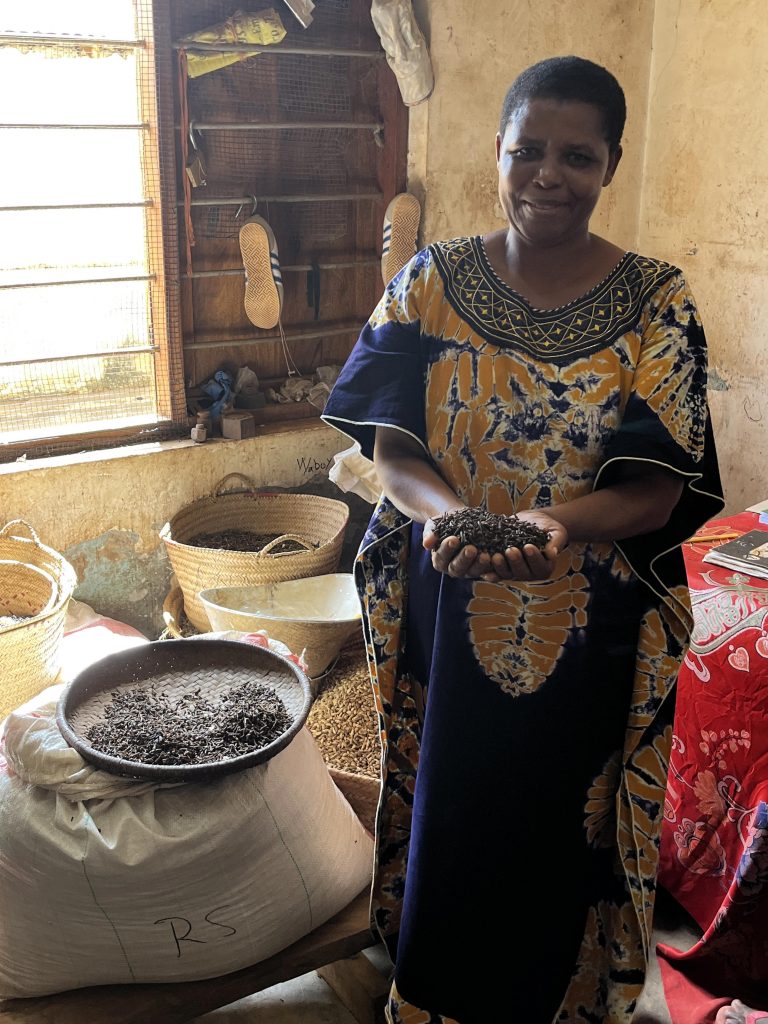
Every Monday, Wednesday and Saturday morning we start early at around 8am and we follow the cultivation cycles of the plants. We source seeds, often from local farmers – for example cinnamon and cloves - mix the compost in which they grow, a combination of local soil and mulch, and plant them out in polybags. It’s important to source seeds from the parent plant when they are young and vigorous. For the mulch, we use organic material from our local farms and animal sheds. We water the seedlings on a daily basis, check their health and growth, monitor for pests and make sure the plants are not outgrowing the poly bags. We finish at 2pm in each of the days allowing us to undertake other necessary house chores and tending to our children.
It’s hard work but being part of a cooperative lightens the load of running and managing the nursery – we share the decisions and the responsibilities as well as the risk. I enjoy working with friends, and often the whole family helps out. Our children often come to help us in the nursery after school or at the weekends, it’s a great opportunity to teach our children to care for the environment as well about how hard work reaps benefits.
One of the biggest challenges we face is the changing climate. The rains are now unpredictable and sometimes we’re unable to sell the number of seedlings we expect to in each season, which can impact our profits.
But we are resilient. We’re developing a plan to expand the nursery – we’ve recently grown to include another four members, also all women. To join the group, candidates need to write a formal application, including an explanation of their skills and aspirations. For applicants who cannot read or write, they need to meet with the group members physically and make their applications orally. We meet as a group to talk about the application and hold a vote on whether we think the applicant should join. New members must sign up to our constitution and profits are shared equally amongst our members.
I also feel incredibly proud of the conservation work we do and how we are supporting the wider community, including the farmers, to grow their income as we grow and sell high quality spices and build our reputation for high quality products. This increased income comes back into our community to improve lives. We are working with our friends to move away from using charcoal stoves to kerosene or solar stoves. Before we started the nursery there were times when I was not able to pay for my daughters’ schooling and they were sent home from school until I had funds available to do so.
Since starting our nursery that has changed; I can afford to put my three daughters through school and my eldest is now studying economics at Mzumbe University in Morogoro.
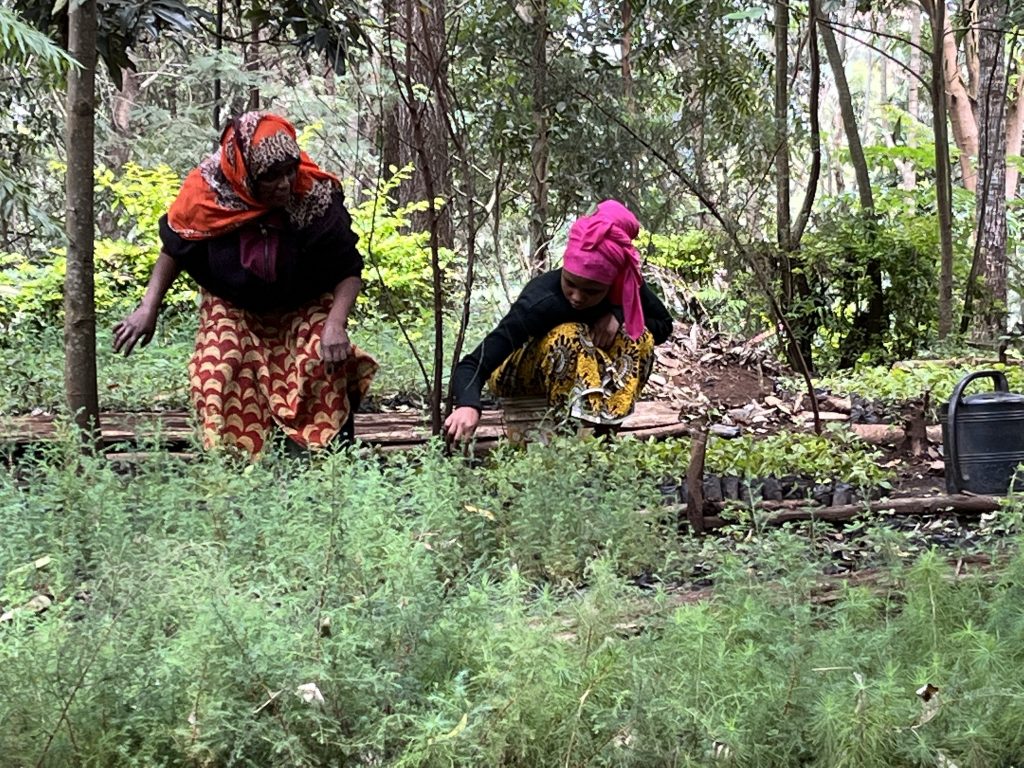
Through our work and that of our community we see that the local environment will continue to improve despite the unpredictable rains. Restoring the reserve has resulted in positive changes in the microclimate, where water accessibility and temperatures (now that the trees are providing shade) are improving on a local scale. Many peoples’ health and mental wellbeing has also improved.
I am thankful to be in a position to support other women and help take them on a journey similar to mine, empowering them to support themselves, their families and the environment. And we are inspiring the next generation - children are getting involved in the nursery and some of them are starting to express an interest in taking it on in the future. That, along with our contribution to restoring the forests of these beautiful mountains, fills me with hope.
The Usambara Mountains are considered a Key Biodiversity Area and play a huge role in supplying water to cities and for hydropower. These montane, lowland and coastal forests are facing degradation pressures from adjacent agricultural areas, fires, illegal logging, artisanal gold mining and illegal livestock grazing. Therefore, restoration of natural habitat is crucial to ensure that a critical water supply is sustainable.
The region is also home to endangered species including the Usambara Hyliota (Hyliota usambara) in the high mountain forests, and the black and white coloured Colobus monkeys in the mid elevations, as well as the critically endangered long-billed Tailorbird.
Through funds received from Trillion Trees, WWF is working to restore the forests of the Usambara Mountains.

